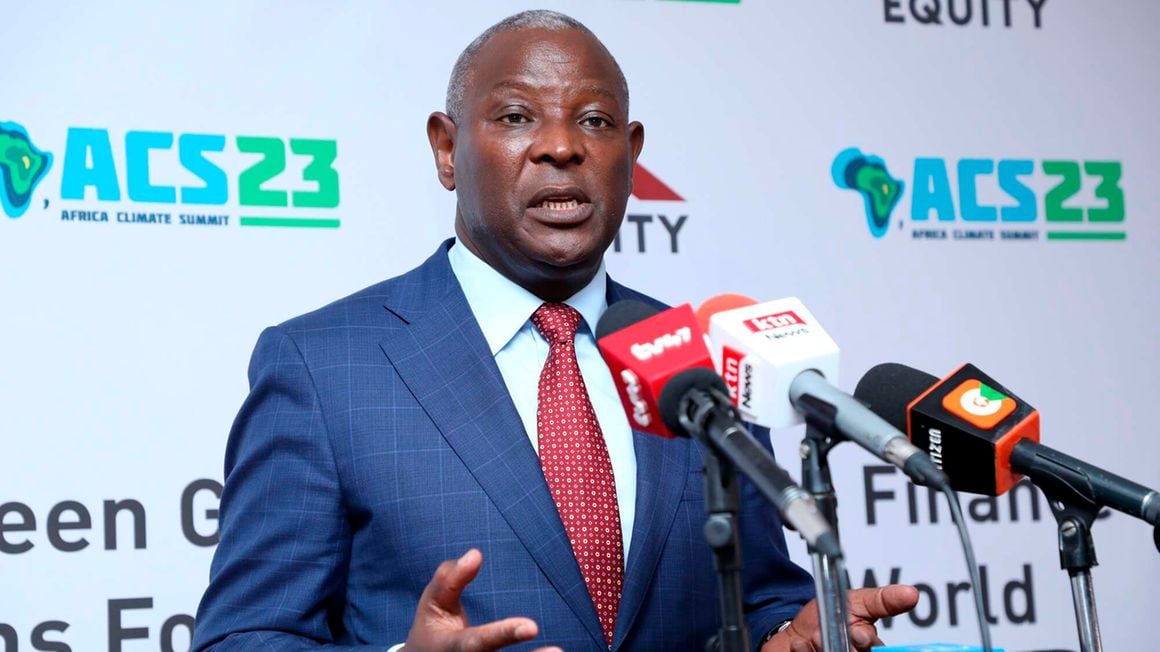
Businesses across the world are under increased pressure from regulators and the civil society to adopt sustainable business practices to complement the global climate change mitigation efforts.
Studies show that consumers are also becoming increasingly environmental conscious, seriously scrutinising the environmental impact of the products and services they consume and steering clear of businesses they deem ‘unsustainable’.
This has made sustainability a ‘badge of honour’ that every business wants to have, but questions abound whether organisations are doing the most they can to become sustainable even at the expense of profits.
At the Africa Climate Summit (ACS) this past week, the Africa Business Leaders Coalition (ABLC) – a group of top business executives working towards sustainable business practices – repeated their commitments made at COP27 in Egypt last year to adopt sustainable practices such as increasing the share of renewable energy use and investing in climate-adaptation solutions.
READ ALSO ‘Common agenda’ calls intensify ahead of Africa Climate Summit
“We feel as a private sector, we have a role and a responsibility to work together with our governments to deliver on the commitments that the governments have made to the African people,” said James Mwangi, Equity Group CEO and a founding member of ABLC.
Mwangi, who addressed the summit on Wednesday, said private companies on the continent pledge to “adopt green and circular business models, designing products that are environmentally friendly, and ensuring integration of sustainability throughout the value chain.”
Empty rhetoric?
But despite these commitments in speech and paper, some civil society groups say few private companies are actually going the extra mile or willing to take a hit on profits to embrace sustainable practices.
Arnie Saiki, managing director of US-based climate non-profit Intemerate Earth, argues that although businesses say sustainable business practices are profitable, “they will not do any programs that does not benefit their profit margins,” even if it benefits the global environment.
“Yes, they’re participating in sustainability and good governance practices, but only if they’re able to make a profit, or protect their interests or in the market. The motivations may not entirely be profit-driven, but it’s driven by something else other than sustainability,” he told The EastAfrican in an interview on the side-lines of the ACS.
Executives of private companies who spoke to The EastAfrican, on the other hand, say they are doing their part to reduce carbon emissions resulting from their pursuit for profit.
“We all have a role to play,” said Edgar Kitur, Bolt Food’s country manager for Kenya.
“Cities are actually built for people, not for cars and we should all try to make them more for people than for cars by embracing sustainability.”
Bolt recently introduced electric motorcycles on its platform as part of its sustainability efforts in addition to planting trees and having features such as ride share that help reduce carbon emissions generated.
Their archrival in the digital taxi space, Uber, also says it is embracing sustainable practices through similar features – e-bikes and ride share.
But the only incentive both ride-hailing companies are providing to boost e-mobility is providing the platform for drivers with e-bikes, which are much cheaper to maintain and power. This shows that their ‘sustainability’ drives have little, if any, impact on their own revenues.
Other businesses operating in the region, especially those still packaging their products in plastic containers or bags, have also come under fire for what activists say is making sustainability pledges that they don’t fulfil.
For example, ahead of the UN Environmental Assembly last year, American NGO Conservation Law Foundation published a report accusing big multinational companies like Coca-Cola and PepsiCo of making sustainability commitments that are never achieved.
“Although it’s well known that virgin plastic production is a major contributor to climate change, ‘Big Beverage’ often distracts us from this reality by running marketing campaigns that target recycling as the solution,” the report said, arguing that the companies use virgin plastic because it’s cheap.
People and planet
This begs the question; can businesses pursue both sustainability and profits with the same zeal concurrently?
Faith Ngige, coordinator for the Climate Business Information Network – an initiative of the Kenya Private Sector Alliance (Kepsa) – says it is possible. She argues that companies today are no longer “just looking for business with the profit bottom line.”
“With the rise of sustainability and the green movement, businesses have come to appreciate that there are three dimensions to doing business: the people, the planet, and the profits,” she told The EastAfrican.
“The planet dimension has seen businesses deliberately taking efforts to map up their footprint to the environment. Within this sustainability agenda, the profits orientation is completely down.”
Sandaa Ojiambo, executive director of the UN Global Compact – a voluntary initiative for businesses to embrace sustainable practices – said in an interview with The EastAfrican that sustainability and profits for businesses don’t have to be mutually exclusive.
“You can be a successful business and you can be sustainable and I don’t think the two should be at odds with each other. The two should never be at odds if you want your business to be successful in the long run,” she said.
“Right now, there’s so much awareness of the opportunities around sustainable business and the sustainable development goals, and we always encourage businesses to embrace them as a way of making their business more competitive and resilient in the long term.”
Ojiambo admits that businesses across the globe need to do more to adopt the principles of sustainability.
“The opportunity that exists for large multinationals is to really examine their supply chains. It’s not enough to sit in your corporate headquarters and say we’re green over here, we’re managing our footprint,” she told The EastAfrican.
___
Source here
